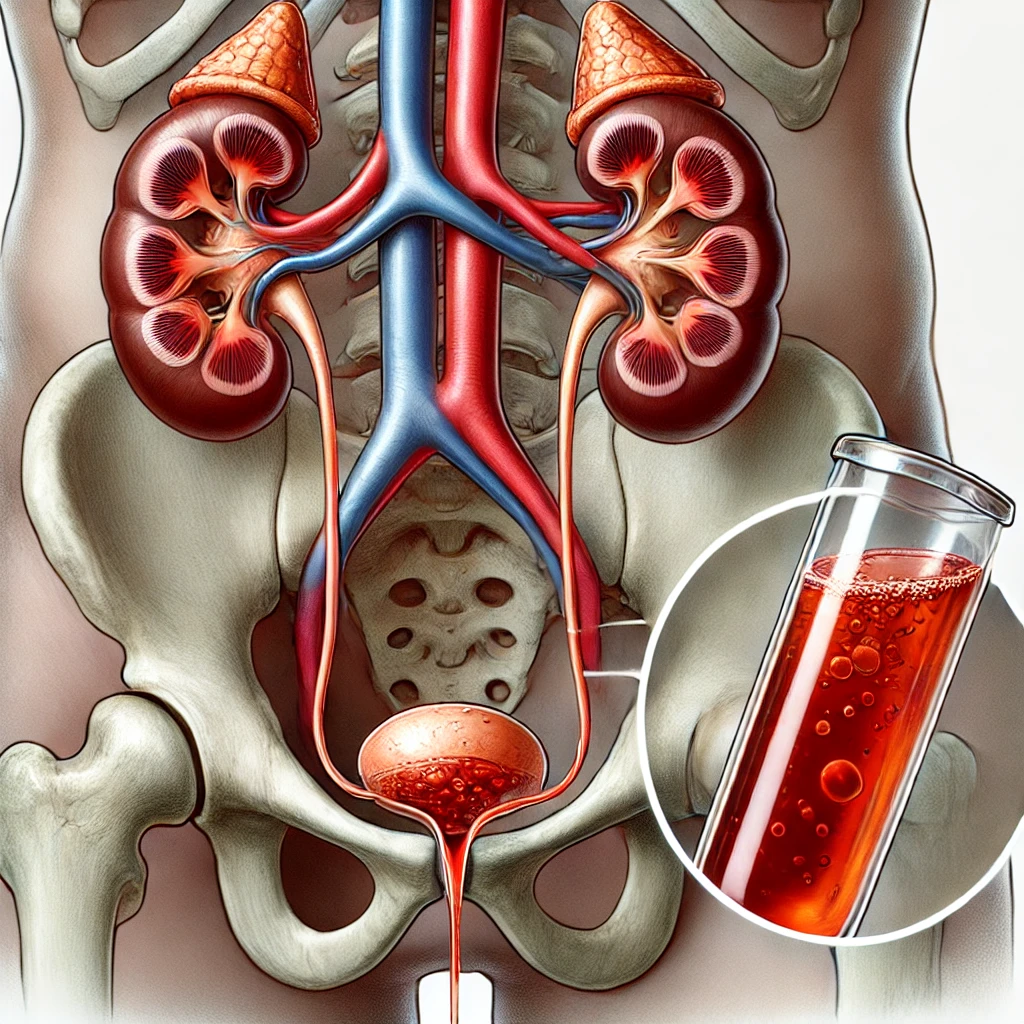What is Hematuria?
Hematuria refers to the presence of blood in the urine. It can be visible (gross hematuria), where the urine appears pink, red, or brown, or microscopic hematuria, where blood is detected only under a microscope. While it can sometimes be harmless, hematuria may also be a sign of an underlying medical condition that requires attention.
Causes of Hematuria
Several conditions can cause blood in urine, including:
- Urinary Tract Infections (UTIs) – Bacterial infections in the bladder or kidneys can cause irritation and bleeding.
- Kidney or Bladder Stones – Hard mineral deposits can damage the urinary tract, leading to blood in urine.
- Kidney Infections (Pyelonephritis) – An untreated UTI can spread to the kidneys, causing pain, fever, and blood in the urine.
- Enlarged Prostate (in Men) – The prostate gland may press on the urethra, causing hematuria.
- Kidney Diseases – Conditions such as glomerulonephritis can lead to inflammation and bleeding in the kidneys.
- Cancer – Bladder, kidney, or prostate cancer can cause hematuria, especially in older adults.
- Injury – Trauma to the kidneys or bladder from accidents or strenuous exercise can lead to bleeding.
- Medications – Blood thinners or certain pain relievers may cause hematuria as a side effect.
Symptoms Associated with Hematuria
- Pink, red, or brown-colored urine
- Pain or burning sensation during urination
- Frequent urge to urinate
- Lower back or abdominal pain
- Fever or chills (if an infection is present)
When to See a Doctor
Blood in urine should never be ignored. Seek medical attention if you experience:
- Persistent or recurrent hematuria
- Painful urination
- Lower back pain or abdominal discomfort
- Fever, nausea, or vomiting
- Difficulty passing urine
Diagnosis and Treatment
Your doctor may recommend tests such as:
- Urinalysis – To check for blood, bacteria, and other abnormalities.
- Imaging Tests – Ultrasound, CT scan, or MRI to examine the kidneys and bladder.
- Cystoscopy – A procedure using a thin tube with a camera to inspect the bladder.
Treatment depends on the underlying cause and may include:
- Antibiotics for infections
- Medication or lifestyle changes for kidney stones
- Surgical intervention for more severe cases such as tumors or obstructions
Prevention of Hematuria
- Stay hydrated by drinking plenty of water.
- Maintain good hygiene to prevent infections.
- Avoid excessive use of painkillers and blood-thinning medications.
- Treat UTIs promptly to prevent complications.
- Monitor underlying conditions like high blood pressure or diabetes.
Conclusion
While hematuria is not always serious, it can indicate underlying health conditions that require medical evaluation. If you notice blood in your urine, visit Advanced Poly Clinic for expert consultation and diagnosis. Our experienced healthcare professionals in Nepal are here to provide accurate assessments and effective treatments to ensure your well-being.
📞 01-4531078 or 01-4543386






